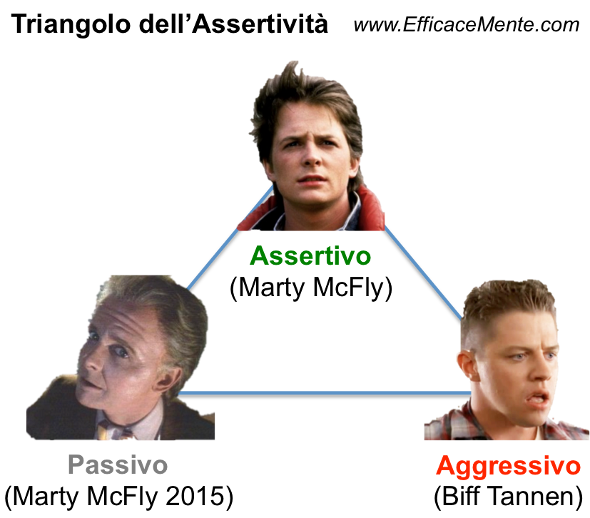Do you know what is the definition of self-sabotage? No?! Yet it seems that you are an expert in "shooting in the foot"! It is time to learn more about this mental trap and get rid of it forever.

"I do nothing against myself, yet I am my executioner."
John Donne.
I want to tell you a story, the story of the chattering mouse.
During a flood, a squirrel, a hare and a chatty mouse they find themselves desperately clinging to a tree trunk, which is violently dragged by the raging river.
A brave swan, seeing the three animals in difficulty, decides to help them; but it can only help one of them at a time and its webbed legs do not allow it to grasp them.
Then turning to the squirrel he asks him to cling with his mouth to his right paw.
After rescuing him, he gives the same instructions to the hare as well.
Finally, exhausted and in pain, the swan returns to the chattering mouse: "I recommend little mouse, I know you love to talk, but if you want to survive, squeeze my paw tightly with your mouth and I promise to save you."
"I will" answered the mouse and together they leave the trunk almost completely submerged by the relentless waves.
The two animals fly to safety, but a few meters from the shore, the chattering mouse he can't help himself and turning to his savior he says "I would like to land in ...". Without finishing the sentence, the little mouse falls into the river in flood and disappears in a few moments, swallowed by the tumultuous waters.
– The End –
The first time I read this story I thought three things:
- 'this story is really worth it!
- The little mouse more than talkative seems to me a cogl..ne! :-D
- Wait, we're sure we're so different from the little mouse ... uh, talker ?!
Try to think about it. We often know exactly what we must do (and not do) to achieve salvation, or simply our goals, yet we never miss an opportunity to sabotage our own path, to give us the famous shot in the foot.
Because?!
Self-sabotage: meaning and causes

We can define theself-sabotage as the set of actions that we implement, more or less consciously, and which hinder the achievement of our long-term goals.
The most common forms of self-sabotage are the following:
- Be afraid of the failure.
- Being unable to say "No".
- Worry continually.
- Having delusions of perfectionism.
- To judge e criticize continuously ourselves and others.
- Whimpering.
- Compare constantly his own life to that of others.
- Procrastinate.
Do you find yourself? Well, I guess you're still wondering ... why the hell do we do this ?!
Self-sabotage essentially has 5 because:
- We prefer the "devil we know". The other day I was talking to one of my consultants here in London, when he comes up with this expression:
“better the devil you know than the devil you don’t”.
That is, it is better to deal with a situation that we know, even if unpleasant, rather than embarking on something new and unknown. Here, being successful necessarily means changing, and our brains don't like changes, because every change, even positive, requires a waste of mental resources. In this case, therefore, self-sabotage is a mechanism aimed at keeping us within the reassuring confines of our own comfort zone.
- We want to be in control. Even giving 110% no one can guarantee us the achievement of our goals. There is always an aspect of unpredictability. On the contrary, if we sabotage our path, we can be sure of what the outcome will be. As paradoxical as it may seem, our need for control leads us to do even this bullshit.
- We have bad habits. Subtle mental mechanisms are not always necessary to explain our self-sabotage strategies: sometimes, we prepare ourselves for failure, just because we have adopted a whole series of negative habits such as social addiction, smoking (you already have this system to quit). tried?), diet etc.
- We are bored. As seen, our brain hates changes. At the same time, however, he needs, from time to time, a few "blows of life", in short, something that stimulates him and does not make him bored. There are many constructive ways to stimulate our mind, but you know how it is, the dark side is always more tempting. Here then is that we are willing to trade our future happiness for an ephemeral moment of pleasure.
- We think we don't deserve it. There are a number of studies that link self-sabotage with low self-esteem. Ultimately we prepare for failure because we are intimately convinced that we do not deserve success and happiness.
Now that we understand what self-sabotage is, how it manifests itself and what its causes are, how about we get rid of it once and for all ?!
"Think about what you could accomplish if you just stopped putting a spoke in the wheel."
Seth Godin.
A practical two-step method to combat self-sabotage

Francis Bacon had one voice: "Knowledge is power", overknowledge is power". The first step to get out of self-sabotage therefore consists in getting to know our enemy thoroughly and analyzing him under the microscope as a scientist would do in his laboratory.
1. Investigation
As soon as you read this article, take some time for yourself to carry out some sort of scientific investigation. In fact, taken by the despondency of failure, we often abandon ourselves to the whims, losing lucidity, but above all losing the opportunity to really understand how we have sabotaged ourselves for the umpteenth time.
So here's how to carry out your survey:
- When we live in a "no" period, everything seems to go wrong. In reality, the different areas of our life are closely linked to each other and we know very well that one of these is dominant. What is it for you? In which sphere of your life are you shooting yourself in the foot? Money? Relations? Health? Narrow the field of investigation.
- Well, now that we know where to look, we need to identify which one self-sabotage strategy we are adopting more frequently. Please refer to those identified at the beginning of the article: are you afraid of failing? Do you make too many commitments and never say "No" to anyone? Procrastination like there's no tomorrow ?!
- Finally we must analyze the causes of our behavior. Again, choose from the five I showed you at the beginning of the article.
The result of your investigation will have to look something like this (it's a simple example):
“My main problem is i money. I have several projects in mind to improve my financial situation, but I continue to procrastinate. I do this because while I hate my current job, at least it's a hell I know well. "
Let's now look at the second phase.
2. If ... then ...
In programming, the “If… Then…” construct, known as selection (or conditional structure), is one of the most powerful tools available to programmers. Even the most advanced software hides some form of "selection" in the meanders of their code.
Nerd aside, what we're interested in knowing is that one of the most effective ways to avoid self-sabotage is know a priori how we will behave when one of those classic situations occurs in which we love to shoot ourselves in the foot.
That is why it is important to first do our investigation: now that we know the enemy, we can defeat him. In fact, in this second phase you will have to establish, in detail, what behaviors you will adopt in place of those that have sabotaged your success up to now.
Let's see some practical examples:
- I know… I find myself postponing my projects because I'm afraid of giving up my job, so… I will focus my efforts on activities that I can develop in parallel, without giving up my current salary.
- I know… I always say yes to everyone because I'm insecure, so… I will learn to postpone my decision for 24 hours ("ok, I'll let you know by tomorrow").
- I know… I have delusions of perfectionism because I always have to have control over everything, so… I will learn to apply Parkinson's Law.
Conclusions
The combinations and examples could be endless, but at the end of this post I would like you to remember just these three key points:
- There are several forms of self-sabotage. Identify the one you do most often.
- If we shoot ourselves in the foot, we do it for some motivations which, however absurd, respond to the needs of our brain. If we understand them, we can neutralize them.
- Decide in advance how you will intervene every time you are about to put a spoke in the wheel.


























